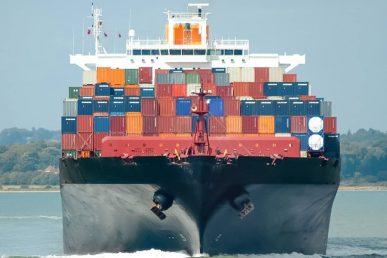Trade Finance
Cross border trade finance, purchase order finance, export finance, supply chain finance, import export finance for established businesses

Cross Border Trade Finance Explained
Businesses typically start by selling products domestically supported by a handful of local suppliers. If they become successful UK SMEs may develop international customers and migrate part of the supply chain to lower cost economies. Trade finance provides the working capital lubrication for businesses involved in exporting goods or importing products, so that operating cashflow is not tied up unnecessarily in the business. The company benefits from improved cashflow and pays a fee to the trade finance provider.
Broadly speaking, trade finance can be segmented into export finance and import finance. According to the British Business Bank 530,000 UK SMEs export goods. Export finance allows a UK business to receive prompt payment for goods shipped to an international customer. This enables the UK business to retain a competitive position internationally by providing the customer with normal credit terms. The import finance provider charges a fee and is repaid when the international customer pays the invoice.
Import finance, also called supply chain finance, purchase order finance or stock finance, is the reverse process. A UK buyer places an order with a foreign supplier who would typically require advance payment, or payment prior to shipment. The supply chain finance provider will provide payment to the supplier, for a fee to the UK business. The provider is repaid after a specific period or when the UK company has received payment by its customer.
Due to the international nature of trade finance, there is a strong involvement of 3rd party credit providers such as Allianz Trade, Coface or Atradius, who provide risk assessments of jurisdictions and assess the credit status of international customers and suppliers.
SME Trade Finance
Blueray Capital is an FCA regulated, trade finance broker with established partnerships with cross border trade finance solution providers offering the best trade finance terms for export and import finance. We source export finance, import finance and international working capital solutions for clients across the country but especially in London, Oxford, Bristol, West Midlands, Manchester & Leeds. We work with established businesses providing them with whole of market access for import finance, export finance and supply chain finance.
Import Export Trade Finance Criteria
Trade finance is available from £50k to £25m, although usually our clients are looking for export finance or purchase order finance solutions in the £250k to £5m range. Once on-boarded with the supply chain finance provider a business can expect to see advance rates from 50% to 90% of the invoice value, depending on territory, sector and credit profile. Once the transaction is approved, advances are rapid, within 24-48 hours.
Minimum eligibility requirements differ but typically the business should have been trading for more than two years, with annual sales of between £100k and £1m. The trade finance provider will be keen to assess the strength of the business itself and the credit profile of the counterparty. Territory restrictions typically include sanctioned countries, African nations, and certain other nations deemed to be elevated risk. Most products can be supported except for perishables, precious metals and commodities such as iron ore, coal and oil.
The maximum repayment term for businesses with a trade finance facility is 90 days to 120 days. Fees paid reflect the size of the trade finance facility provided, the strength of the business and the credit profile of the counterparty. Fees and interest rates vary among trade financing companies, so it makes sense to appoint a trade finance broker to help source the best trade finance terms available.
To apply for trade finance can be a rapid process as many of the specialist trade finance providers have automated, online portals which enable them to rapidly assess the strength of the applicant. Indicative offers can be available in hours, but the overall on-boarding process is likely to be 1-2 weeks due to the credit process involved.
Business Trade Finance
Banks providing supply chain finance and specialist trade finance providers have different information requirements but normally SMEs will need to provide full accounts, latest management accounts, bank statements, aged debtor and creditor reports and Director information. Trade finance agreements are subject to external credit agency review, credit sanction, identity checks (KYC) and completed documentation. A charge may be taken over the business and Director Personal Guarantees are often required.
A recent and growing requirement to secure business trade finance is open banking and access to accounting systems. Open banking provides secure, read-only access to the SME’s bank account for a brief period once relevant credentials and permissions are provided. Providing access to accounting packages such as Sage, Xero & QuickBooks, among others, and visibility of the bank account enables trade finance solution providers to rapidly assess the financial performance of the business and the strength of application. This is a trend that is likely to expand to cover most of the trade finance market.
Apply for a Trade Finance Facility
As a trusted trade finance broker for SMEs, we provide business owners and Finance Directors with rapid access to the entire import export trade finance and supply chain finance market including banks and specialist trade finance solution providers. This is at no additional cost to the business as the international trade finance companies provide us with a share of their fee.
To receive a prompt response with an indication of terms, submit a summary of your business with your trade finance requirement by clicking on the Apply button below.
